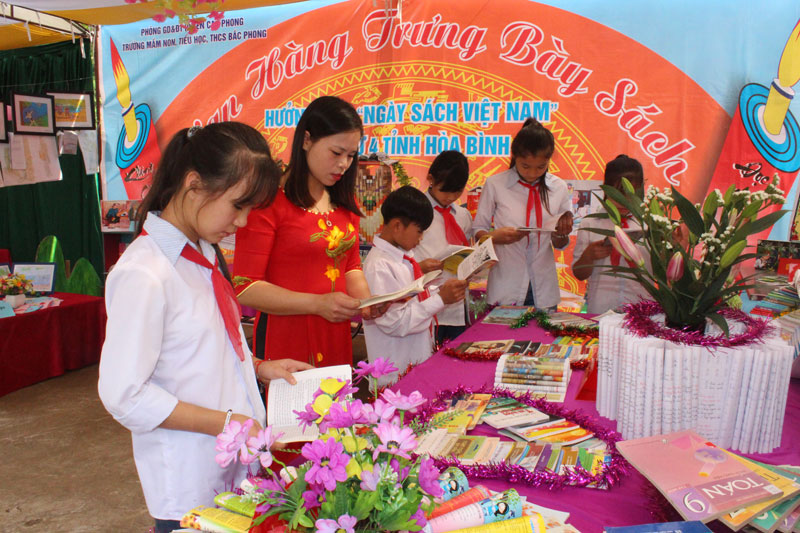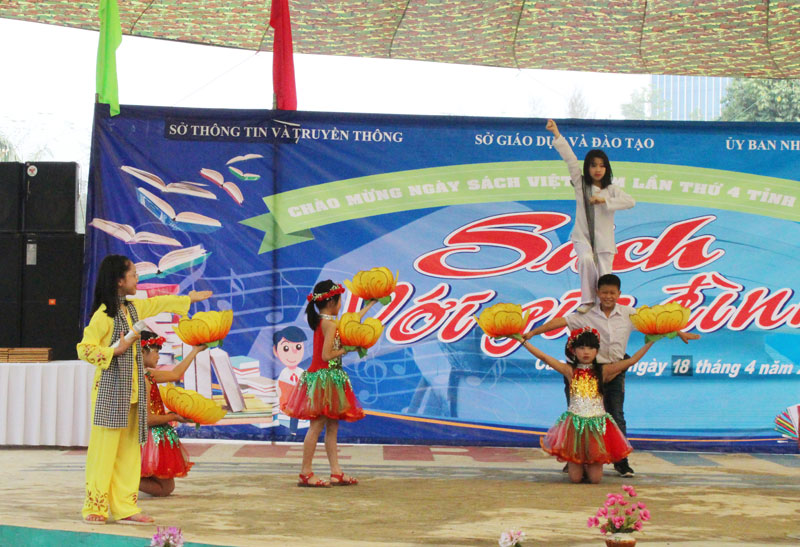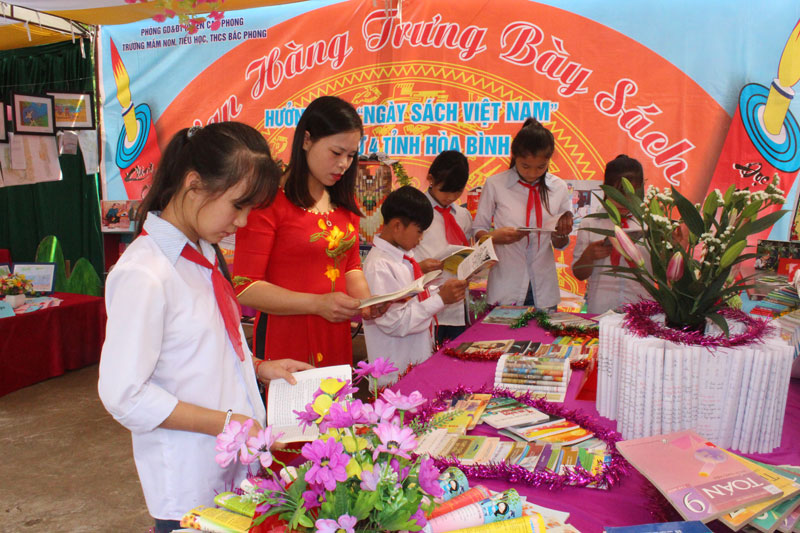
(HBO) - The Department of Information and Communications has coordinated with the Department of Education and Training and Cao Phong District People's Committee to organize the 4th Vietnam Book Day of Hoa Binh Province in 2018.

The contest of propaganda and
introducing books of the pupils of Cao Phong Town Primary School.

Delegates and pupils visiting
bookstores.
The Book Day is organized to
continue the succession and promote the success of organizing Vietnamese Book
Day for four times and Book Day of Hoa Binh Province for three times; building
and shaping the beauty of the cultural and spiritual life of the people through
"Book with the family." At the same time, this is a chance to
mobilize the participation of the community and all social resources in the
investment in reading habit development. Therefore, this event aims to confirm
the role and importance of books, to honor the value of books, to build a
reading culture in the community, to honor the participants in the process of
collecting, researching, printing, publishing, keeping and promoting books, to
raise the responsibility of all levels, branches, functional agencies, social
organizations, the staff of book writers, to participate in publishing,
printing and distribution books.
At the Book Day event, there were some activities taking place, such
as: demonstration contest of book display stores, storytelling, drama,
propaganda, introduction of books; organizing exhibitions, displaying books,
book fairs with introductory booths, selling preferential books, serving
readers for free; launching the movement of building reading habit and donation
culture, supporting books for people in remote areas.
With an increasingly vibrant and widespread emulation movement aimed at building cultured residential areas and cultured families, Yen Thuy District has been making steady progress toward improving both the material and spiritual well-being of its people, while fostering a civilized, prosperous, beautiful, and progressive community.
Once lacking recreational spaces and community facilities, Residential Group 2 in Quynh Lam Ward (Hoa Binh City) has recently received attention for the construction of a new, spacious, and fully equipped cultural house. The project followed the model of state support combined with public contributions in both labor and funding.
The "All people unite to build cultural life" movement, which has been effectively integrated with Kim Boi district’s socio-economic development goals, is fostering a lively spirit of emulation across local residential areas, hamlets, villages, public agencies, and enterprises. In addition, through the initiative, traditional cultural values are being preserved and promoted, while community solidarity and mutual support in poverty reduction and economic development are being strengthened.
A working delegation of the Hoa Binh provincial People’s Committee led by its Permanent Vice Chairman Nguyen Van Toan on June 11 inspected the progress of a project to build the Mo Muong Cultural Heritage Conservation Space linked to tourism services in Hop Phong commune, Cao Phong district.
Born and growing in the heroic land of Muong Dong, Dinh Thi Kieu Dung, a resident in Bo town of Kim Boi district, in her childhood was nurtured by the sweet lullabies of her grandmother and mother. These melodies deeply imprinted on her soul, becoming an inseparable part of her love for her ethnic group's culture. For over 20 years, this love for her hometown has driven Dung to research, collect, and pass down the cultural values of the Muong people to future generations.
In the final days of May, the Ethnic Art Troupe of Hoa Binh Province organized performances to serve the people in remote, mountainous, and particularly disadvantaged areas within the province. These were not just ordinary artistic shows, but they were the meaningful journeys aimed at spreading cultural values, enhancing the spiritual life of the people and contributing to the preservation of ethnic minority cultural identities.




